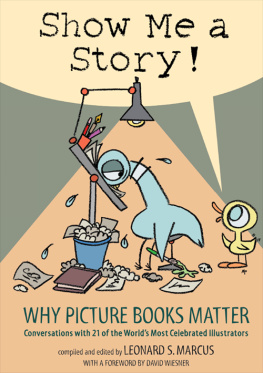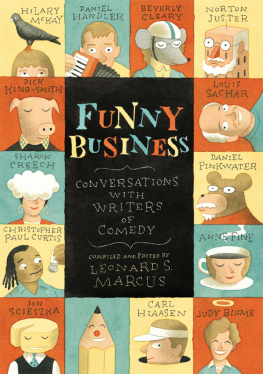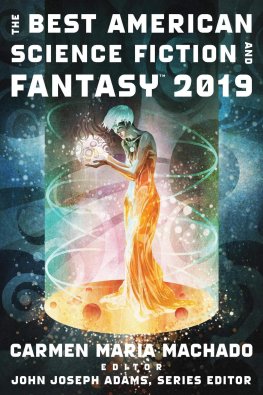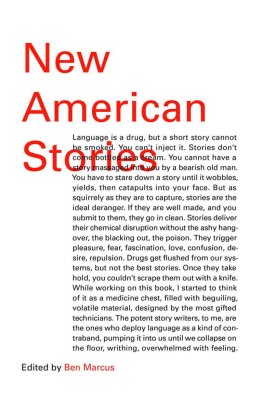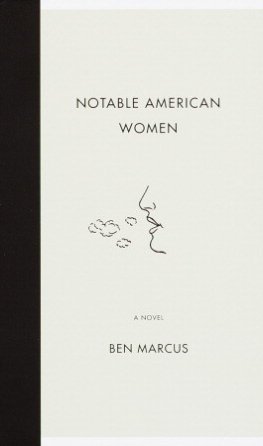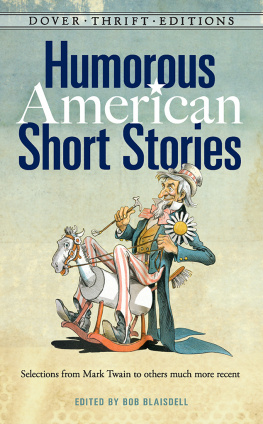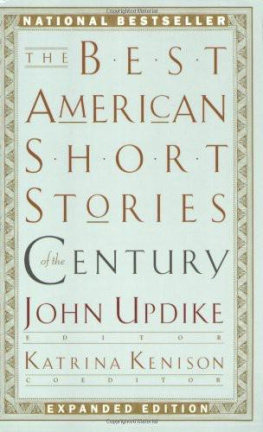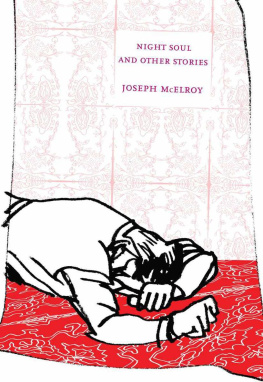PARANOIA
Sad Sayrafiezadeh
When April arrived, it started to get warm and everyone said that the war was definitely going to happen soon and there was nothing anybody could do to stop it. The diplomats were flying home, the flags were coming out, and the call-ups were about to begin. Walking across the bridge, I would sometimes see freight trains lumbering by, loaded top to bottom with tanks or jeeps, once even the wings of airplanes, heading out west or down south. Some line had been crossed, something said or done, something irrevocable on our side or on the enemys, from which there was no longer any possibility of turning back. I hadnt been following matters that closely, so I had missed exactly when things had taken a turn. Nevertheless, everyone was saying that the war was going to happen soon and so I said it too.
Then May came and it got hot and Roberto broke his nose and asked me if I would come visit him in the hospital. Blood everywhere, he told me over the phone. Apparently he had been lifting weights at the gym when one of his buddies, in order to emphasize some conversational point he was making, feinted like a boxer and swung at Robertos face. The buddy had meant merely to pantomime the punch, but with his arms heavy-light from having just bench-pressed three hundred pounds, he had lost the ability to gauge distance, strength, or speed, and he cracked Roberto right in the nose. I wanted to question the details of the story because Roberto was subject to hyperbole, and also because I was selfish and didnt want to make the trip across town, but I was the closest thing to family that Roberto had, and on the telephone he did sound like he had a sock stuffed down his throat and up his nose.
To make matters worse, my car happened to be in the shop, and according to the bus map, I had to catch three buses Id never heard of. So what should have taken me twenty minutes was going to take an hour and a half. Sitting in the back of the J-23B with the air-conditioning barely working, I stared out the window as we crawled through residential neighborhoods whose houses were all hung with flags. There was no breeze, and the flags hung limply. Some of the homes displayed the MIA and POW flags from bygone wars, and every so often thered be a sign stuck in a window that said PEACE or NO WAR or something to that effect, but those were few and far between, and for the most part everyone was on the same page. Ten minutes into the ride, I was sweating heavily; rivulets ran from my armpits down my sides and collected in the elastic of my underwear. This is what it must feel like for soldiers on the transport heading to battle, I thought. I was wearing shorts and my thighs adhered to the bus seat so that whenever I shifted, my skin peeled away from the plastic. The other passengers were old hands and obviously knew what was in store for them because theyd come equipped with things to fan themselves with, things like newspapers and magazines and even a flattened cereal box. Out of the corner of my eye, the rapid motion resembled birds alighting. Twenty-five minutes into the ride, I retrieved a discarded supermarket circular from under the seat in front of me and tried to use it as a fan, but the paper was too thin and kept flopping over and I wasnt able to generate any current. I folded it four times and then gave up and tossed it back under the seat where Id found it. A woman looked at me with disapproval. She was waving a book in front of her face.
It was already on the floor, I said. I smiled. She shrugged. She didnt care.
At every corner, the bus hit a red light, and wed have to sit idling for sixty seconds, stewing in the pot, and then once the light turned green and the bus made it through the intersection, it would stop again to let passengers on and off, elderly people who took forever, fat people who took forever, a man in a wheelchair who took five minutes, and by the time we arrived at the end of the next block, the light would be turning red again and wed have to stop and idle and do the whole thing all over. It was abysmal urban planning, humiliating and crushing. I kept urging the bus forward by tensing and twisting and leaning forward like a bowler who imagines his body language can influence the trajectory of the ball once its left his hand. My skin peeled. I blamed everyone: the bus, the driver, the passengers. I blamed Roberto for breaking his nose. Then I blamed myself for blaming Roberto. It wasnt his fault. Nothing was his fault. His nose was just another symptom of his vulnerability, his desperation, a strange man in a strange land, hoping one day to magically transform into an American and have a real life. Im already an American, hed say indignantly, haughtily, in a clipped and formal way that was supposed to emphasize the fact that he had lost, through extreme effort, all traces of an accent. Im an American just like you! But he wasnt just like me. He was darkdark-skinned, dark-haired, black-eyed, from some village that nobody had ever heard of and which hed left twelve years earlier when his father was awarded a scholarship to study architecture at our university, all expenses paid.
I had discovered him in the park one afternoon about two weeks after he arrived, thirteen years old, skinny and solitary, unable to speak a word of English, tossing a baseball up in the air. Te gusta jugar al bisbol? Id said, because Id been taking Spanish for two years, though the teacher, despite providing us with an extensive vocabulary and showing us how to conjugate every verb backward and forward, had neglected to teach us how to construct a complete sentence save one: Do you like to play baseball? Roberto had gazed at me in confusion, almost terror, until finally he responded, S, me gusta jugar al bisbol. Four years later, his father graduated with honors and the familys visa expired, effective immediately. It was time to go back. But Roberto had no interest in going back. So they went back without him, leaving him with eight months of high school to go, alone and illegal, in an apartment that had been emptied of almost everything, including the furniture. I was there the day after they left. It looked like it had been ransacked. He had his bed and his clothes, but that was about it. The closets were open and empty, and the curtains were gone. Standing in the void of a three-bedroom apartment he couldnt pay for, he tried to act chipper about his prospects at age seventeen. In his new-found independence, he had taken the opportunity to cut out pictures of Arnold Schwarzenegger at various stages of his career and paste them on the wall like wallpaper. There was nothing in the refrigerator except a jar of mayonnaise and a can of tuna fish, but it didnt matter, because he didnt have any dishes.





